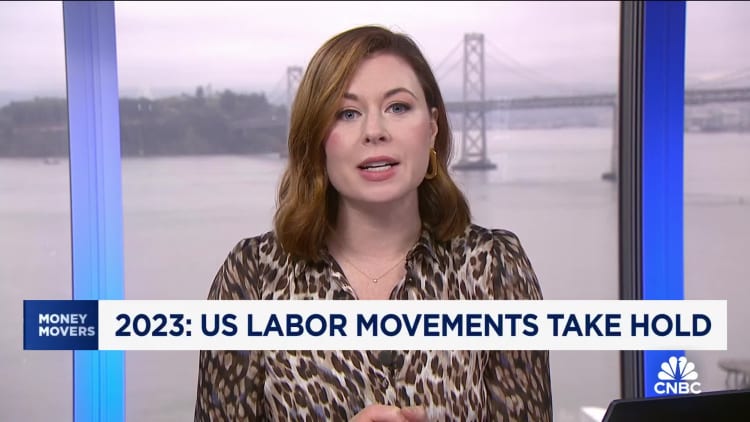
Maskot | Digitalvision | Getty Images
Workers are sour on the job market — but that pessimism may be somewhat misplaced.
The Glassdoor Employee Confidence Index in January fell to its lowest level since 2016, when the career site began tracking the metric, it said Monday. The index measures how workers feel about their employer’s six-month business outlook.
The decline suggests job security is a “prominent” worry, said Daniel Zhao, lead economist at Glassdoor. “It’s a signal that employees are concerned heading into 2024,” he said.
Layoff headlines mask ‘very robust’ job market
That deterioration is likely due to a wave of layoff announcements in recent weeks, Zhao said.
So far in 2024, for example, big technology firms including Amazon, eBay, Google and Microsoft have announced job cuts. But it’s not just tech. Others such as BlackRock, Citigroup and Universal Music Group also announced layoffs.
U.S.-based companies planned about 722,000 job cuts in 2023, almost double those announced in 2022, according to Challenger, Gray & Christmas, an outplacement and executive coaching firm.

However, those recent headlines mask strength in the overall job market, economists said.
From a worker’s perspective, things “don’t get any better,” said Mark Zandi, chief economist at Moody’s Analytics.
Despite pockets of layoffs in certain industries such as tech, Zandi said job cuts across the broad U.S. labor market continue to hover near historic lows, where they’ve been since spring 2021.
New claims for unemployment insurance are in line with their pre-pandemic trend in 2019, which economists describe as a period of labor market strength. The unemployment rate has also been below 4% for two years.
Indeed, when it comes to the average annual unemployment rate, 2023 was the sixth-best year on record, ranking only behind a few years in the 1950s and 1960s, said Julia Pollak, chief economist at ZipRecruiter.
“It’s still a very robust and resilient labor market overall,” Pollak said.
Outlook depends on your reference point
While the Glassdoor index shows deteriorating confidence, other measures signal a rosier view about the job market and U.S. economy.
For example, consumer sentiment jumped 13% in January to its highest level since July 2021, according to the University of Michigan. Similarly, a Conference Board poll also found that consumer optimism strengthened in December across all ages and household income levels.
Housing values and stock prices are at record highs and, in relative terms, “everyone’s got a job,” Zandi said.
More from Personal Finance:
Why workers’ raises are smaller in 2024
Workers are paying to get part of their paychecks early
The ‘haves and have nots’ of the job market
ZipRecruiter’s Job Seeker Confidence Index also rose in the last two quarters of 2023, though it remains below early 2022.
Overall worker sentiment likely depends on their reference point, Pollak said.
For example, if workers are comparing outcomes relative to what was expected to happen in 2023 — a year in which many economists had expected the U.S. to tip into recession — then the recent job market looks like “a miracle,” Pollak said.
However, workers are more apt to compare their current outlook to that of a year or two ago, a time when the job market was red hot and workers had record leverage to get better jobs and higher pay. Since then, “things have definitely cooled and slowed,” Pollak said.
The one ‘blemish’ in the U.S. economy
The Federal Reserve raised borrowing costs aggressively to cool the economy and labor market to ultimately tame persistently high inflation.
The inflation rate has decreased significantly from its pandemic-era peak. But the inflationary episode has left consumer costs noticeably more expensive, especially for staples such as food and rent, economists said.
“The only [economic] blemish — and it’s a big blemish — is prices are much higher than they were two to three years ago,” Zandi said.
High pandemic-era inflation eroded buying power for the average person in consecutive months for more than two years. While wage growth was historically high, workers’ paychecks bought less.
But that trend has reversed: Wage growth now surpasses the rate of inflation for the average person, meaning workers’ paychecks are growing again relative to the things they buy. If that trend holds, consumer confidence should gradually rebound, Zandi said.
Don’t miss these stories from CNBC PRO: